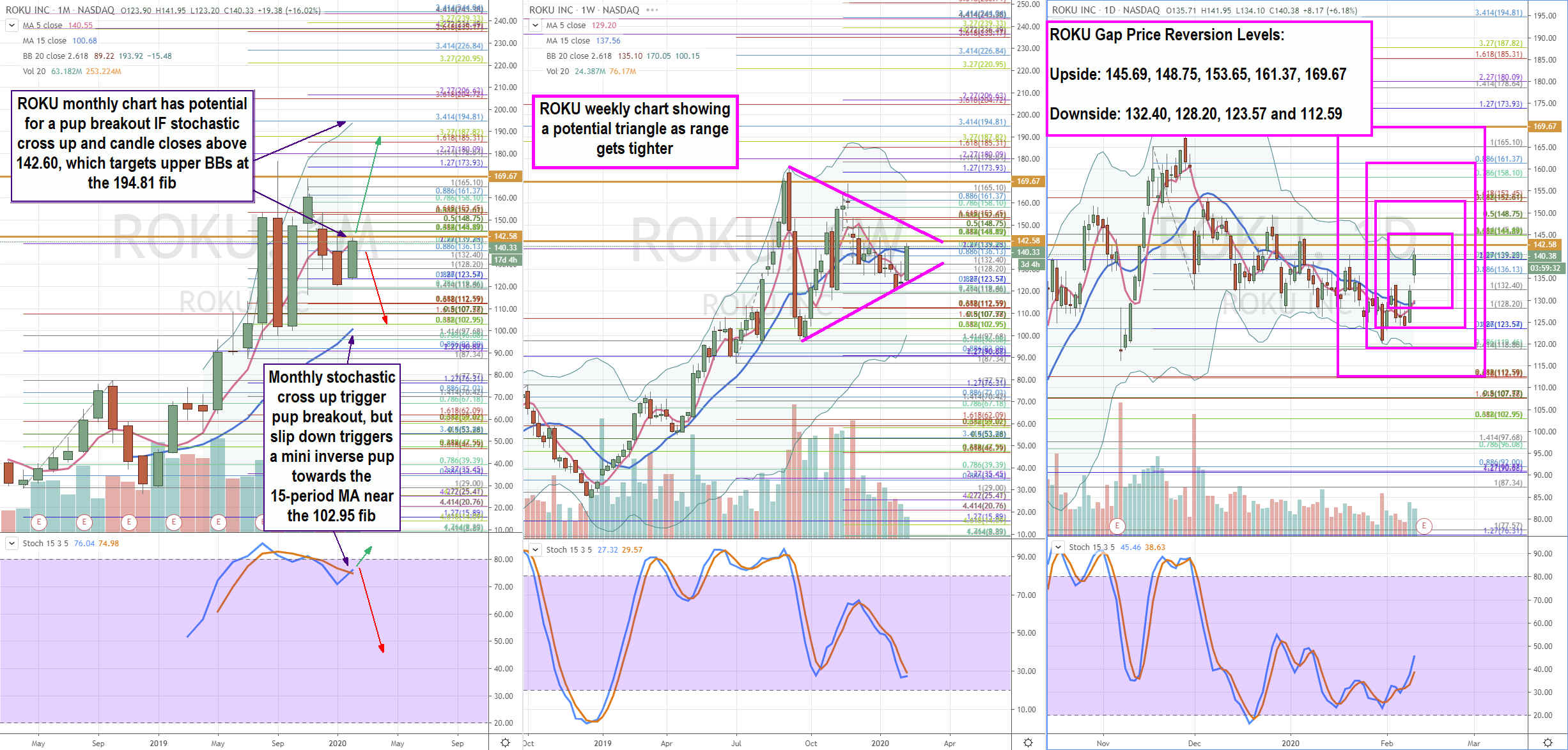TV streaming device maker Roku Inc. (NASDAQ: ROKU) operates its network platform, manufactures its players and licenses its Roku Operating System (OS) technology embedded into most smart TVs. Roku has ridden the cord-cutting wave as cable customers migrate to cheaper and more flexible alternatives to the rigid cable providers. Roku has emerged as the largest streaming platform in the U.S. and aggressively pursuing international penetration. Since Roku is a distributor, not a content creator, the threat of disputes with content networks always looms. This was highlighted by the recent dispute with
Fox Corp. (NASDAQ: FOX) (NASDAQ: FOXA) that threatened to end Fox channel availability but was settled at the 11
th hour with a new distribution deal enabling 4K streaming of the Super Bowl. While content providers can try to protect their exclusivity, Roku gains leverage by bolstering its user base/distribution network which grew to 32.3 million active accounts (up 36-percent YoY) as reported in its Q3 2019 earnings report.
Roku Rides the Streaming Wars
The much-publicized ‘streaming wars’ mistakenly assumes Roku is a content creator, instead, it’s a content distribution platform. The battle for compelling content to draw subscribers has been waged between the likes of Netflix (NASDAQ: NFLX) , Amazon (NASDAQ: AMZN) with Amazon Prime, Apple (NASDAQ: AAPL) with Apple TV and recently Walt Disney (NYSE: DIS) with Disney+ and to a lesser extent with Google (NASDAQ: GOOG) (NASDAQ: GOOGL) chrome cast and YouTube. However, content needs to be accessibility, which Roku provides as a simple, convenient and economical one-stop solution for end-users. Roku reported 10.3 billion hours of streaming in their Q3 2019 report, a 68-percent YoY increase while bolstering revenue-per-user by 30-percent on a 12-month trailing basis.
Earnings Catalyst
Roku reports its Q4 2019 earnings post-market on Thursday, Feb. 13, 2020, followed by the 5:00 pm EST conference call. Consensus analyst estimates are for losses of (0.13) EPS on revenues of $392.86 million. Investors will be looking for continued global user growth and network engagement as the streaming wars heat up. Investors will want visibility on its international expansion results, they recently announced the launch in Brazil in partnership with smart TV maker AOC. The three key quarterly growth metrics that will shape sentiment are total active user accounts, total hours of streaming and revenue per user.

Rifle Chart Technical Analysis Trajectories: Longer-Term
Utilizing the rifle charts on wider time frames suitable for swing traders and investors, ROKU is at a critical potential pup breakout point at the monthly 5-period moving average (MA) at 140.55. The stochastic is attempting a crossover back up towards the 80-band which could trigger the pup breakout with upside towards the 194.81 Fibonacci (fib) level and upper BBs. However, if the stochastic cross back down then 15-period MA and 102.95 fib is likely downside target. The weekly BBs are compressing as ROKU makes higher lows and lower highs possibly setting up a symmetrical triangle pattern as the range gets tighter as it nears the apex indicating 148.75 fib x 128.20 range. The daily BBs have been compressing but could be signaling an expansion on the recent gap towards the upper BBs at 141.41, which should resolve on the upcoming earnings reaction.
Sympathy Stocks:
ROKU usually maintains a positive correlation with the streaming stocks NFLX and DIS. The other streaming wars players AAPL, AMZN, GOOG may get initial knee jerk reactions to ROKU Q4 2019 earnings reaction if there’s any indication of unexpected shifts in streaming trends or on headlines pertaining to the content streaming wars.
Trading Game Plan: Short-Term
This information is accommodative to intraday and short-term traders. ROKU will trade extremely fast with wide spreads on the initial post-market earnings reaction. Most intraday traders should focus on keeping trades segmented to the morning session for the best liquidity. Reversion scalps off the key price inflections levels can be played for the second gap reaction then shift focus to the third reaction trend move. The gap price reversion levels for the upside gaps are: 145.69 super fib/stinky 5s zone, 148.75, upper weekly triangle trend line, 153.65 super fib, 161.37 fib, and 169.67 weekly upper BBs. Downside gap reversion price levels are 132.40 fib/stinky 2.50s price zone, 128.20 fib, 123.57 fib/lower weekly triangle trend line and 112.59 super fib/stinky 2.50s zone. For active scalpers, the in-between fibs and sticky 2.50s/5s ranges provide more intraday price inflection points to trade-off. Expect thin liquidity in the first 20-minutes as spreads and ranges tighten. It’s prudent to give wide wiggle room from .30-.70 on the main fibs and scaling in smaller increments on entry and exits is prudent.
Before you make your next trade, you'll want to hear this.
MarketBeat keeps track of Wall Street's top-rated and best performing research analysts and the stocks they recommend to their clients on a daily basis.
Our team has identified the five stocks that top analysts are quietly whispering to their clients to buy now before the broader market catches on... and none of the big name stocks were on the list.
They believe these five stocks are the five best companies for investors to buy now...
See The Five Stocks Here
With the proliferation of data centers and electric vehicles, the electric grid will only get more strained. Download this report to learn how energy stocks can play a role in your portfolio as the global demand for energy continues to grow.
Get This Free Report
Like this article? Share it with a colleague.
Link copied to clipboard.